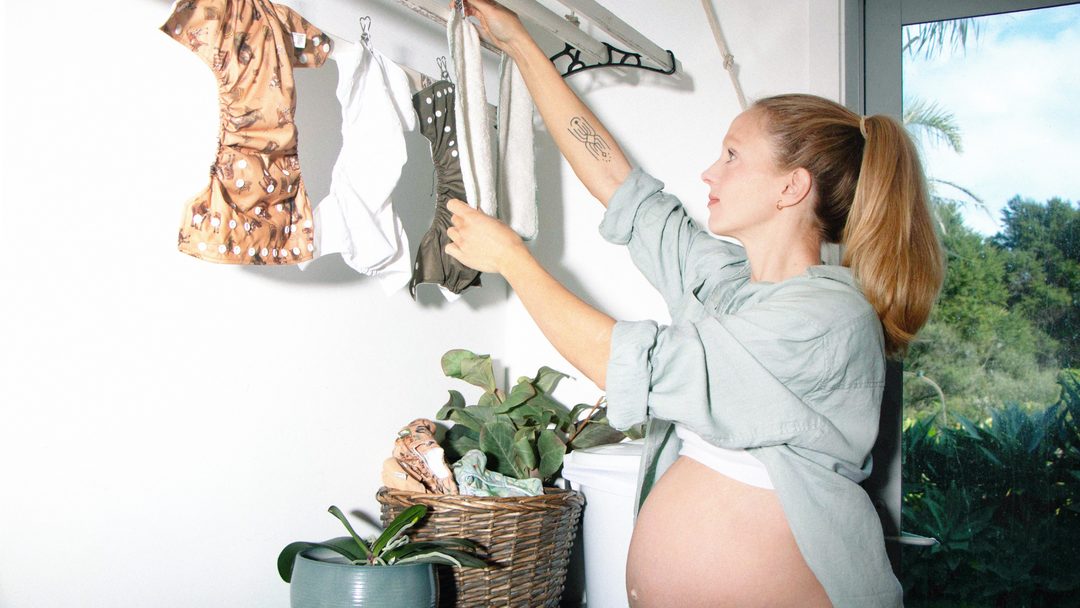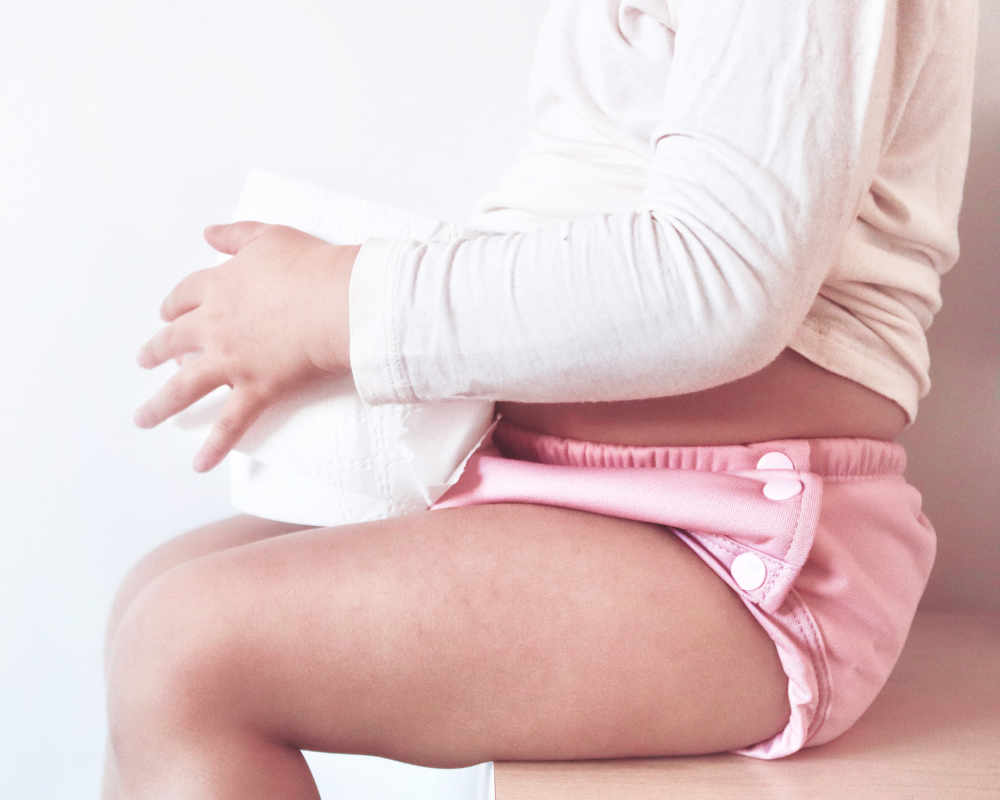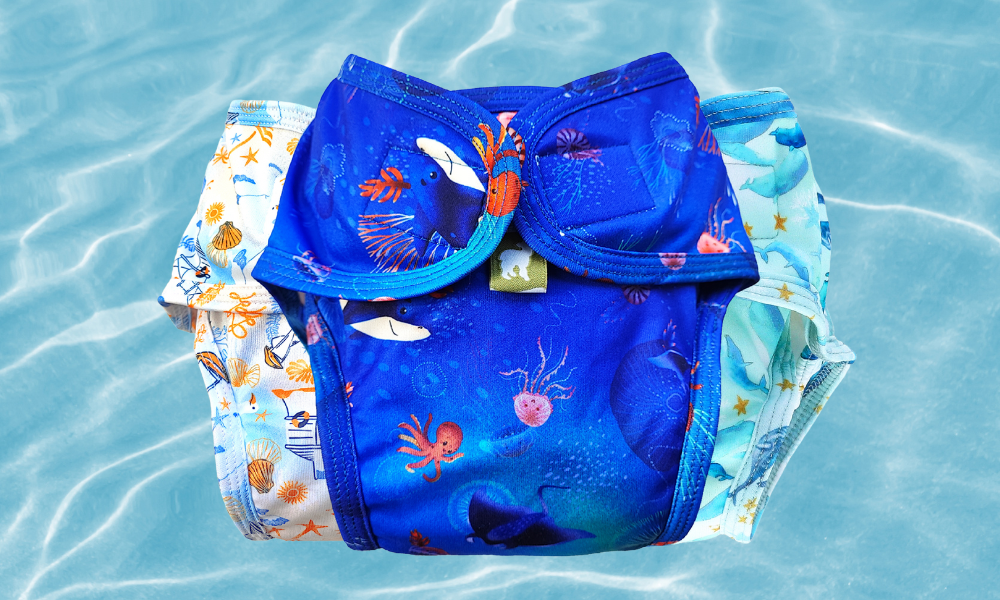
Teaching your baby or toddler to swim is one of the greatest experiences any parent can share with their child. And starting at an early age will help your little angel become confident in the pool far sooner. However, there is one issue that all parents fear: their child pooping in the pool.
The harsh reality is that it happens. In fact, 60% of public pools in America contain small traces of faeces and it can only be assumed that a similar rate of contamination occurs in the UK. While they can’t take all the blame, children are the biggest culprits. Consequently, then, all parents should be prepared for their child to visit poo town.
This guide will answer all of your key questions about swim nappies and the inevitable situation in which your child goes number two, including but not limited to;
- • Why must swim nappies be worn instead of normal nappies?
- • Will swim nappies hold poop?
- • How long will swim nappies hold faeces?
- • What should you do if your child poops while wearing a swim nappy?
- • Which swim nappies are the best - disposable or reusable?
- • What other tips will make life easier when a child poops while swimming?
Why do kids poop in the pool?
However, as you take your child swimming for the first time (or after a long break), you may be wondering how likely it is for your son or daughter to poop in the pool. If your child isn’t yet potty trained or has only recently completed this part of their development, the risk is quite high!
In reality, though, the warmth of the water and swimming motions can cause any child’s bowels to relax. Likewise, kids may be distracted and simply forget. Either way, youngsters are often too embarrassed to say anything, which is why parents must prepare in style. Swim nappies are a vital purchase.
How do swim nappies differ from standard nappies?

Swim nappies are, as the name suggests, nappies that are designed with swimming and water-based activities in mind. They are water-resistant and made available in various sizes for both babies and toddlers.
Contrary to what you may assume, swim nappies are not designed to absorb urine. Instead, they focus on catching poop before it enters the pool and everyone has to evacuate. This is because they have a built in nappy liner that will allow urine to soak through but will not let faces pass.
Standard nappies will also soak up any water that gets in, which will cause them to swell in size and become very uncomfortable for young swimmers. If you are swimming with a baby or toddler, swim nappies are always advised.
So, swim nappies will hold poop?
Swim nappies are designed to hold poop and stop faeces from leaking into the swimming pool. So, it can save parents and children from an embarrassing situation while also preventing the risk of disrupting other families.
However, they are NOT designed to hold the faeces for the remainder of your planned swimming session. Even premium quality swim nappies are only designed to hold the poop for long enough so that you can get your child out of the pool and complete a change before returning to the pool.
The nappy liner catches the poop while the elasticated legs and waistlines are designed to stop it from escaping. However, continued movements caused by the swimming motions can break up the poop while also creating temporary gaps for faeces to escape. The exact duration of time that the poop will be safely secured will vary from one incident to the next. In most cases, you’ll have a few minutes at best.
So, while the answer is ‘yes, swim nappies will hold poop’, you must be aware of the following caveats;
- • Swim nappies are designed to hold solid faces, meaning runny poop can still escape through the sides of the nappy very quickly.
- • Even solid poops can only be held for a short period of time, which is why you must leave the pool ASAP and change your child.
- • If the nappy is not fitted correctly, there is a chance that poop will still escape the nappy and enter the pool.
As a parent, it is important that you continue to pay close attention to signs that your child has evacuated his or her bowel. And if you suspect that there is a code brown issue, you must act immediately.
Disposable swim nappies versus reusable swim nappies
Studies have shown that over 3.4 million children in the UK can’t swim. Giving your child an early start will give them the best chance of becoming competent, so fears of pool-pooping cannot be used as a reason to delay the process.
When looking to purchase swim nappies, you will have two main options to consider: disposable or reusable.
Disposable swim nappies can be a good option for infrequent swimmers. They offer a cheaper solution while parents won’t have to worry about cleaning the product at the end of the swim. Instead, they can simply dispose of it like a standard nappy.
Crucially, swim nappies should offer a snug fit, and buying a nappy your child can grow into simply won’t work. So, if your child isn’t going to get good use out of the swim nappy, a disposable option is probably more logical, even if it does create more single-use plastic..
Cleaning a reusable swim nappy may sound a little grim but it’s a far easier task than you probably imagine. The reusable swim nappies do cost a little more but will offer better value for money in the long haul, assuming your child has regular swimming sessions.
They are also more eco-friendly option and the fleece lining material is often kinder to a child’s skin than the plastic materials of disposable swim nappies.
Are swim nappies suitable for boys and girls?

Absolutely. Both boys and girls can wear swim nappies. They can be worn by youngsters that are typically dry in the daytime as well as youngsters who are in the process of potty training without any fear of sending them backward.
While boys are statistically at greater risk of water-based injuries, it’s just as important for girls to learn how to swim. Aside from protecting them at the pool or beach, teaching babies how to be comfortable in the water reduces the risk of bath-based injuries too.
Like standard nappies, swim nappies are unisex.
Top tips for avoiding dirty nappies in the pool
Almost three-quarters of parents worry about their child’s swimming abilities. Knowing that your child has the right swim nappy removes one potential obstacle before entering the pool. Further tips to avoid encountering a floating poop include but are not limited to;
- • Always inspect the nappy for a comfortable and snug fit while also checking that it hasn’t been damaged.
- • Consider a double nappy system that is recommended by many swim schools and a requirement for some public pools.
- • Encourage your child to use the toilet once you reach the pool venue and before getting in the pool itself.
- • Keep an eye out to check that your child hasn’t pooped, especially in the first few minutes after getting in the pool.
- • Ask your child whether they need the toilet at regular intervals throughout the swim session.
Packing spares, even if you have a reusable swim nappy is also advised. You can also try to help your child avoid swallowing pool water as it could upset their tummy.
The final word
Pooping in the pool is an inevitability that all frequent water babies will experience at least once. As a parent, though, you can minimise the risk of letting it ruin your family time by investing in the right swim nappies. When you do, a good quality swim nappy will hold the poo so you have enough time to evacuate the pool and clean up before returning to the fun.
Happy swimming!







